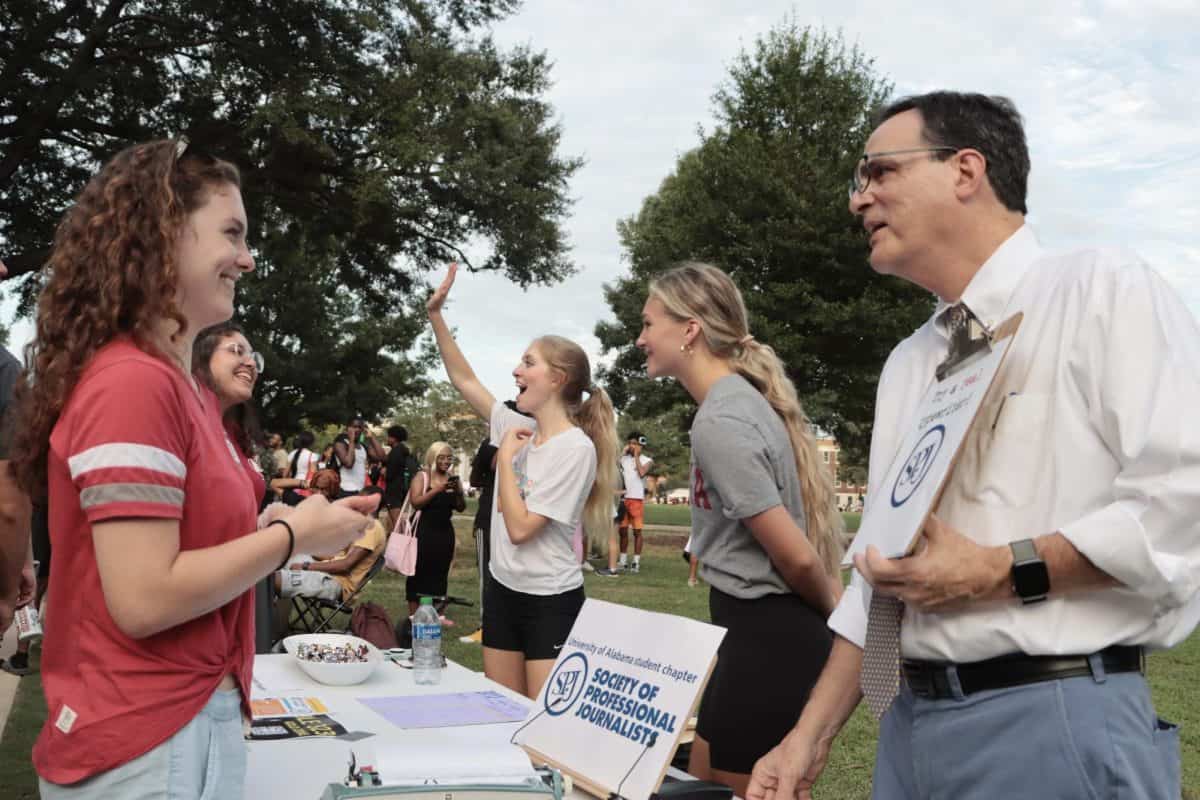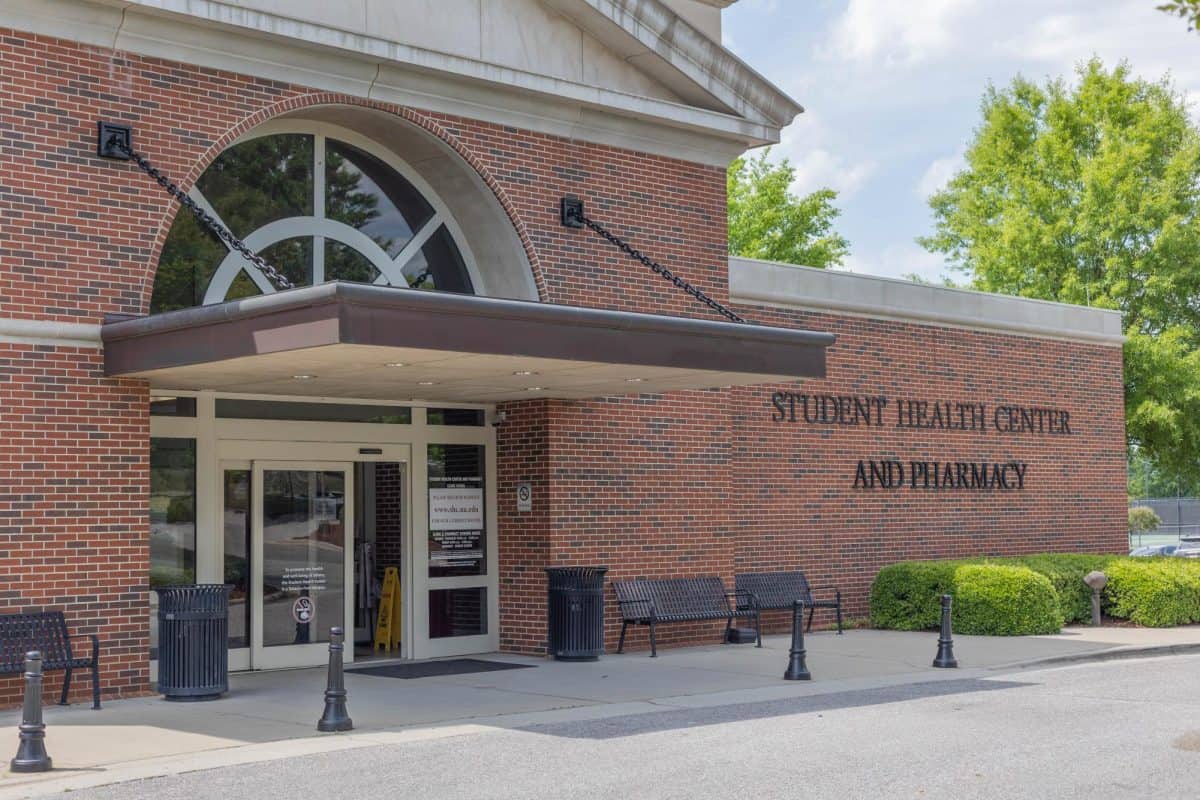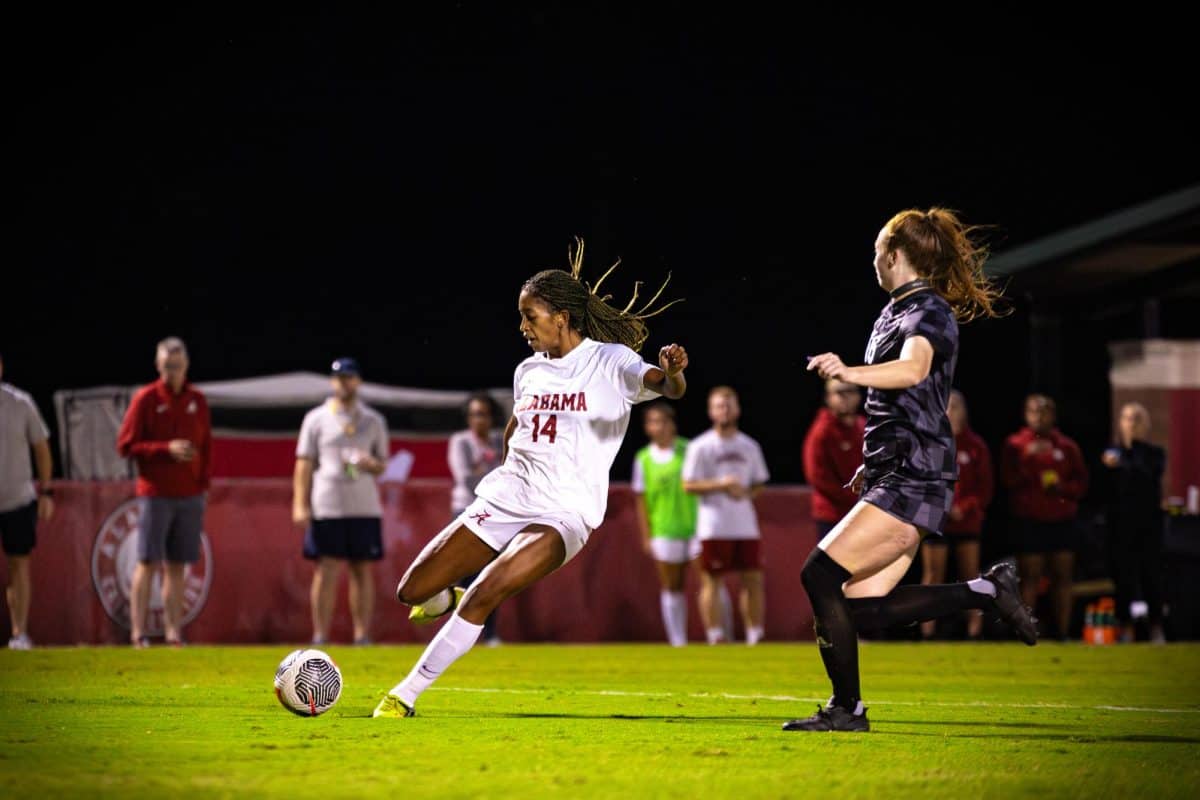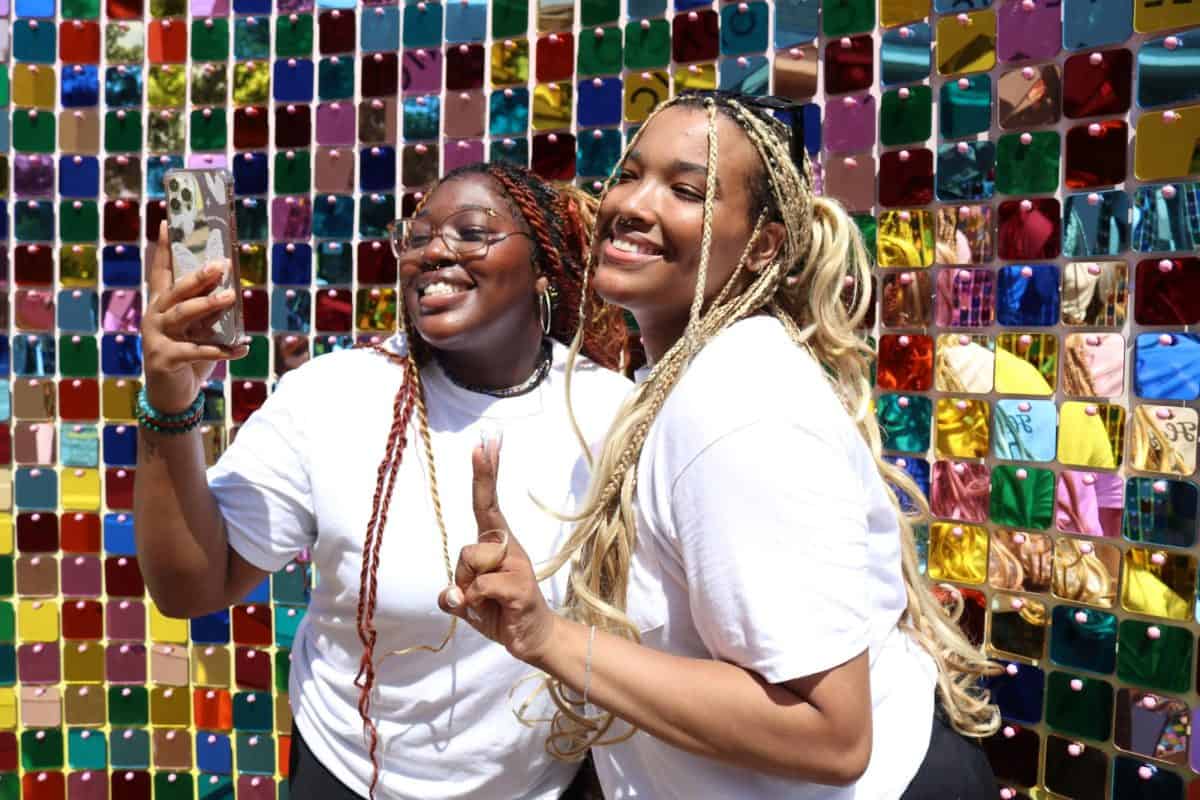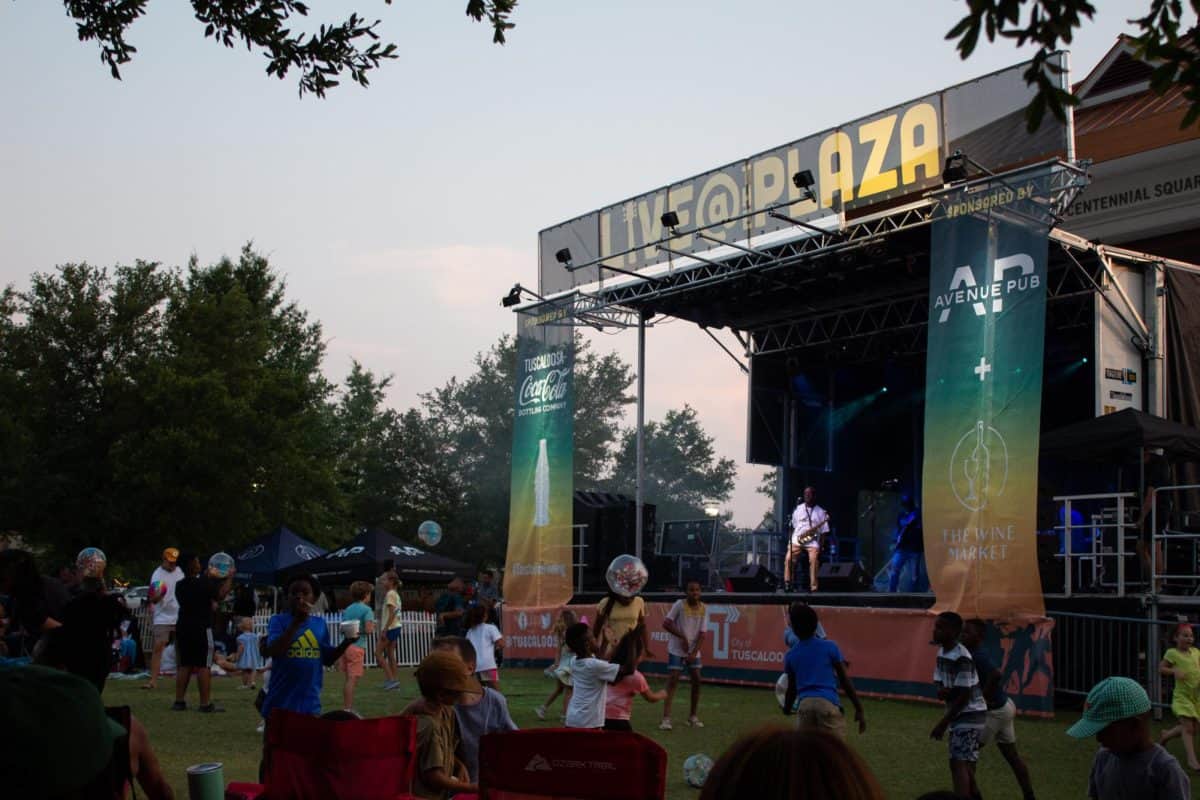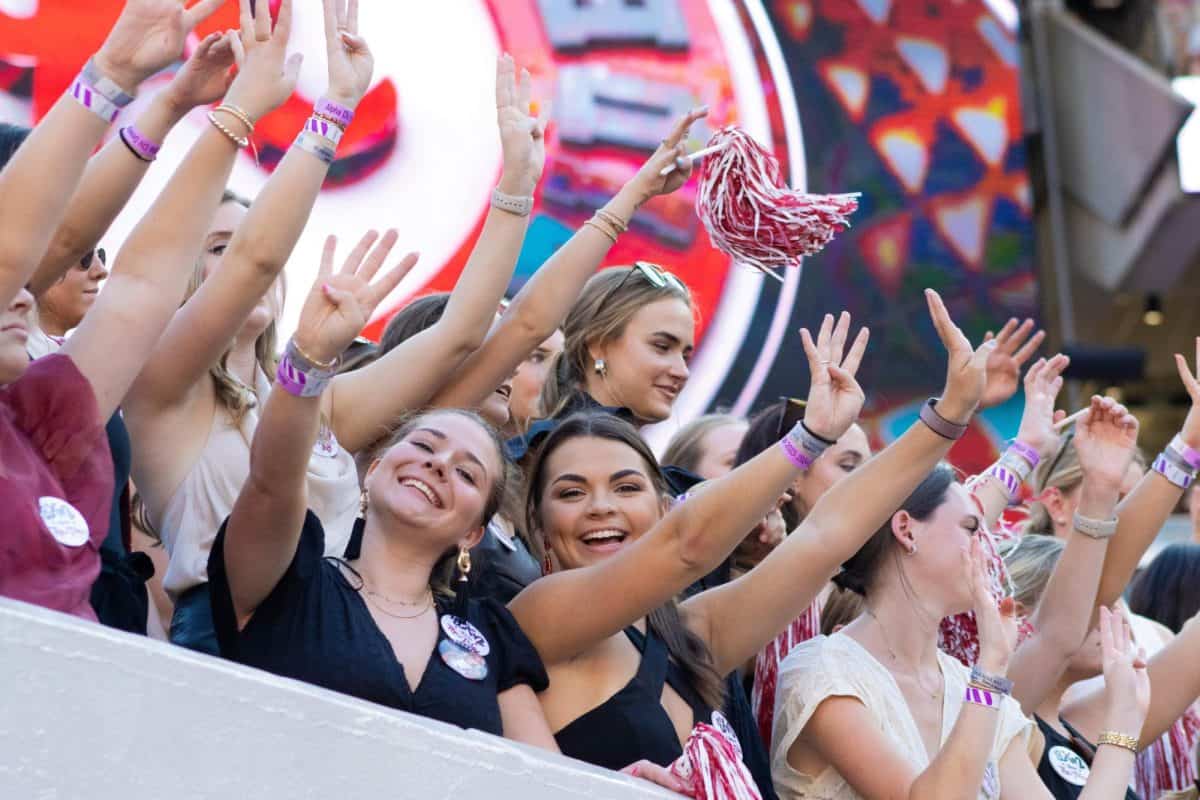Finding community on a college campus can be hard, but certain UA programs exist to provide first-generation students a place to adjust to college life.
Legacy Scholars
Legacy Scholars is the largest first-generation program for UA students of all majors to connect and learn how to network during their time at the Capstone.
The program offers professor mentorships, monthly events to connect with faculty and other students, academic workshops and scholarship opportunities.
Randi Hamm, a former first-gen student at the University who is now the first-generation program manager, said Legacy Scholars is a community-based social program that students can join at any point in the academic year, including as incoming students at Bama Bound orientation.
She said there are no GPA or attendance requirements to join.
“It’s just meeting students where they need to be met so that they can engage at whatever level feels right for them,” Hamm said.
One opportunity that Legacy Scholars offers is mentorship from a faculty or staff member.
Hamm said first-gen students in any grade level, including transfer students, can sign up to be mentored.
To be connected with a mentor, Hamm said students can reach out to her by email at randi.hamm@ua.edu to be put on a waiting list.
Culverhouse’s first-generation program
Hamm said there is also a first-generation student program within the Culverhouse College of Business led by experiential learning director Quoc Hoang.
Hoang said the program aims to provide community; culture; visibility; and outcomes, including networking, obtaining jobs and providing good college experiences for students. He said many students don’t know what a first-generation student is or if they are one.
Additionally, Hoang said many first-gen students don’t feel as though they belong on campus. Once students find community within first-gen programs, Hoang said they are introduced to the culture of belonging and growing in college as a first-gen student.
“Not only do you belong, you deserve to thrive,” Hoang said. “Creating visibility for just being there but also doing great things helps fuel the community.”
Hoang said all Culverhouse students are required to take the GBA 146 course, which includes a lesson on what it means to be a first-gen student and how to get support from the business school.
He encourages first-gen students in business to come check out the events and see if they want to join the program. He said many students learn about events from professors, other students and Culverhouse’s Instagram.
“We’re really intentional about publishing stuff all over our college media,” Hoang said.
Hoang said the program provides a few scholarships for first-gen business majors; networking events; industry immersion events; and fun get-togethers, including playing mini golf and going bowling.
Additionally, there is a first-gen designated study space and lounge in Hewson Hall that requires ACT Card access, Hoang said. First-gen students can scan the QR code next to the room or let Culverhouse know they are a first-gen student to gain access to the space.
Capstone Center for Student Success
Even though the Capstone Center for Student Success is not specifically geared toward first-generation students, Kaley Clemmons, a sophomore majoring in advertising and a member of Legacy Scholars, said she has used the center as an additional academic resource.
Clemmons said the Capstone Center for Success helped her develop good study habits and provided her with tutoring and academic coaching. She said she believes the center is more beneficial to first-gen students since they are new to how college is designed.
Clemmons encourages students to not worry about whether their parents or family members went to college. She said just because your family hasn’t gone to a four-year university doesn’t mean that you can’t.
“You have so many opportunities at UA,” Clemmons said. “And there’s so many possibilities of what you can do.”



